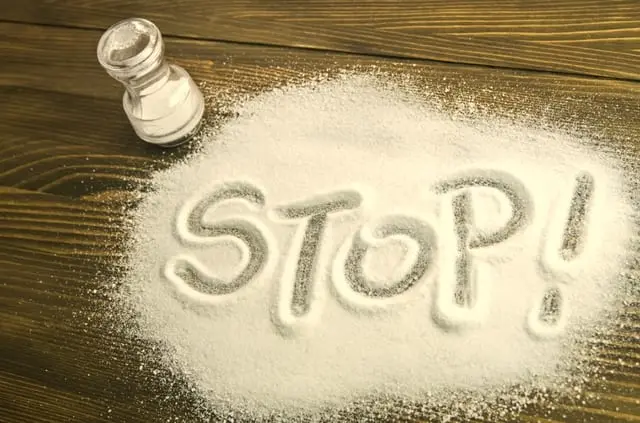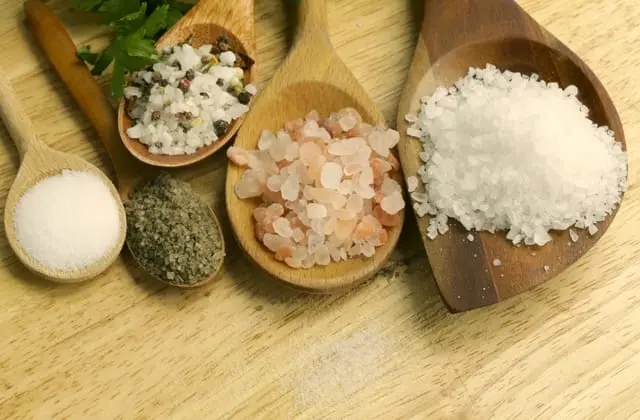Salt-free diet: benefits and harms
Salt is called the white death for a reason, because its excess has a detrimental effect on the body and can eventually lead to dangerous diseases. One of the most effective ways to regulate the level of salt is a salt – free diet, the benefits and harms of which will be the subject of our discussion.

Slow Poison
Salt is an essential component of a person’s daily diet. We consume it in large quantities, without noticing it, because it is hidden in the most unexpected products. However, the daily allowance of salt should not exceed 10-12 g, including salt contained in the food consumed. Salt makes bland food taste better. And this is probably the only reason why we feel an inexhaustible craving for it.
Meanwhile, excess salt, or rather the sodium present in it, keeps excess fluid in the body for a long time. As a result, the load on the kidneys and heart increases many times, blood pressure increases and hypertension gradually develops. Under the influence of salt, the breakdown of cholesterol slows down, which can lead to atherosclerosis and other dangerous diseases of the cardiovascular system. Another unpleasant surprise is the excess weight in addition to swollen legs, swollen stomach and not infrequently cellulite. And all this is due to the excess salt in the body. From this point of view, the benefits of a salt-free diet are obvious. It helps to reduce the level of salt in the blood and normalize the work of all body systems. What are the principles underlying this food system?
Refusal for good

A salt-free diet involves the rejection not only of table salt as such, but also of any sodium compounds found in different products. The prohibited list primarily includes sausages and smoked meats, homemade marinades and pickles, canned food, fried dishes, cereals, flour and confectionery products. At the same time, the question rightly arises, what can you eat in this case? A salt-free diet allows you to eat lean meats and fish in combination with vegetables without salt, with the exception of potatoes. You can supplement the dishes with rye bread, while not exceeding the daily norm of 200 g. Be sure to add light soups on fish or vegetable broth to the diet. Eggs in moderation and low-fat dairy products will be very useful. As a dessert, you can eat any fruit and berries. At the same time, it is necessary to eat in small portions five to six times a day, drink at least two liters of boiled water. Following these principles, you can lose a few pounds in the first week. That’s why a salt-free diet for weight loss is a very effective weapon. Among other things, it helps to establish metabolic processes and properly build a healthy food system.
Be that as it may, doctors pay attention to the fact that the salt-free diet is therapeutic in nature. It is recommended primarily for people with kidney diseases, high blood pressure, frequent edema and overweight. In all other cases, a complete long-term refusal of salt can provoke serious complications.
A reasonable balance

If we talk about weight loss, the results of a salt-free diet can very soon come to naught. Since the weight goes away at the expense of the liquid, the extra pounds are returned along with the” friends ” as soon as salt reappears in the diet. It is important to remember that a lack of salt is just as dangerous as an excess of it. Sodium is a vital element that regulates the level of useful acids and the water balance in the body. A violation of the balance is fraught with a sharp deterioration in well – being, and in particularly neglected cases-death. Very often, a lack of sodium causes a heart attack or stroke. That’s the danger of a salt-free diet.
To avoid fatal consequences, doctors recommend not to abuse this food system and limit it to two weeks. In the future, you can reduce the salt content by other methods. For example, replace the fine – grained salt with ordinary table salt, and even better-sea salt. The level of sodium in it is much lower, but there is plenty of potassium, magnesium and bromine in it. Try not to over-salt the dishes during cooking, adding salt at the very end. Avoid definitely harmful products: semi-finished products, factory-made meat delicacies, canned food from stores, and salted fish. This optimal compromise will help reduce the harm of a salt-free diet to zero.
A salt-free diet, like any other, requires a balanced approach and a thorough consultation with a doctor. Only in this case, it will be useful for the body and will allow you to achieve the desired results.









